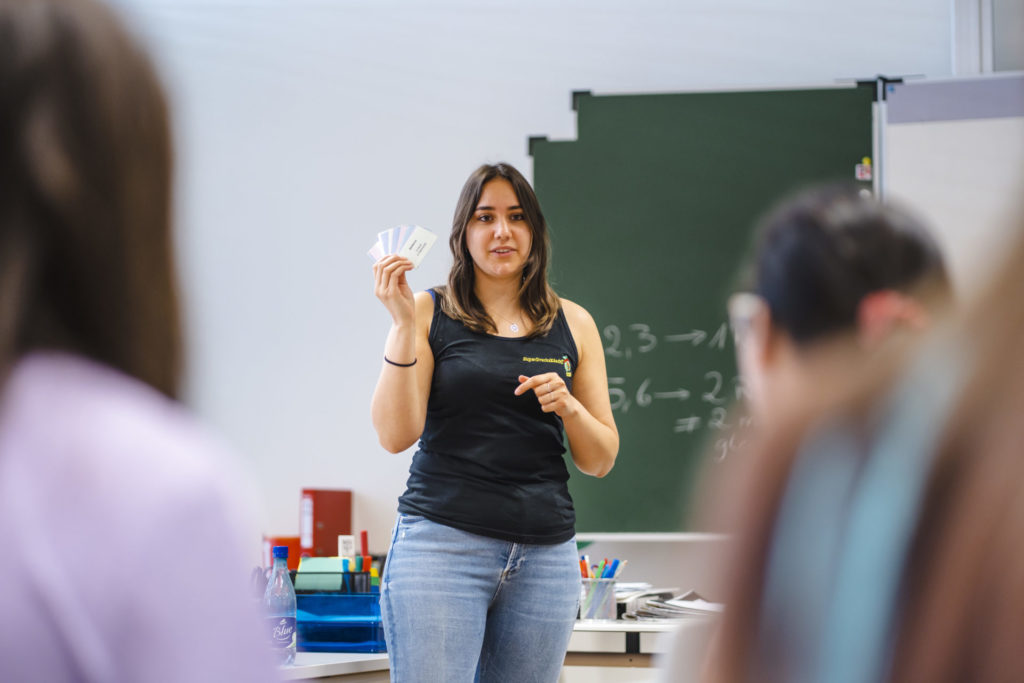
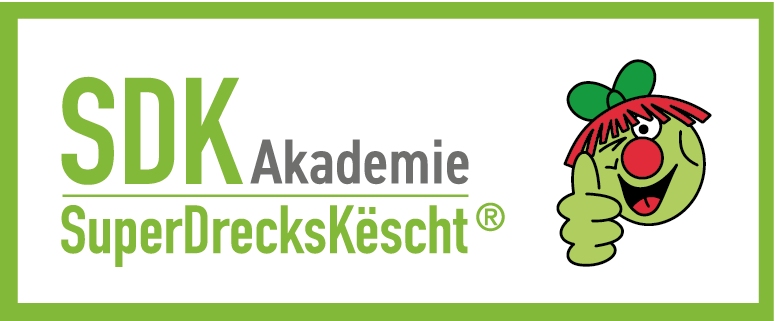
Activities
This activity includes reading the story of the waste monster to the pupils. As part of the story, the pupils get to know the different characters, each of which represents a waste group. The characters are integrated into everyday school life in line with the activity and help the pupils to separate their waste correctly. The pupils also receive helpful tips on waste avoidance.
In this activity, the dwarf Billy accompanies the SDK employee.
Billy shows how new objects can be made from old materials.
To do this, however, he needs the materials from his treasure chest – but it is locked! By solving puzzles about the meaning of recycling, the pupils help Billy to open his waste treasures. They also learn where our waste products belong and what new things can be made from them.
In this activity, the pupils playfully compare the natural cycle of nature with the recycling cycle of our waste products. Using the example of the leaf cycle in the forest, they recognise that no waste is produced in nature and that our recycling processes can follow this example. Finally, the pupils learn how to separate waste correctly.
In this activity, the pupils look at the waste they produce in the course of a day. They then use fictitious people to analyse different types and quantities of waste. In doing so, they compare different habits and recognise how much resource consumption varies depending on lifestyle. The focus of the activity is on conserving resources through correct disposal and targeted waste avoidance.
Immerse yourself and your pupils in the fascinating world of resource cycles and the circular economy – with the Circular Lab! Through interactive experiments and exciting activities, we introduce the principles of the circular economy in a fun way.
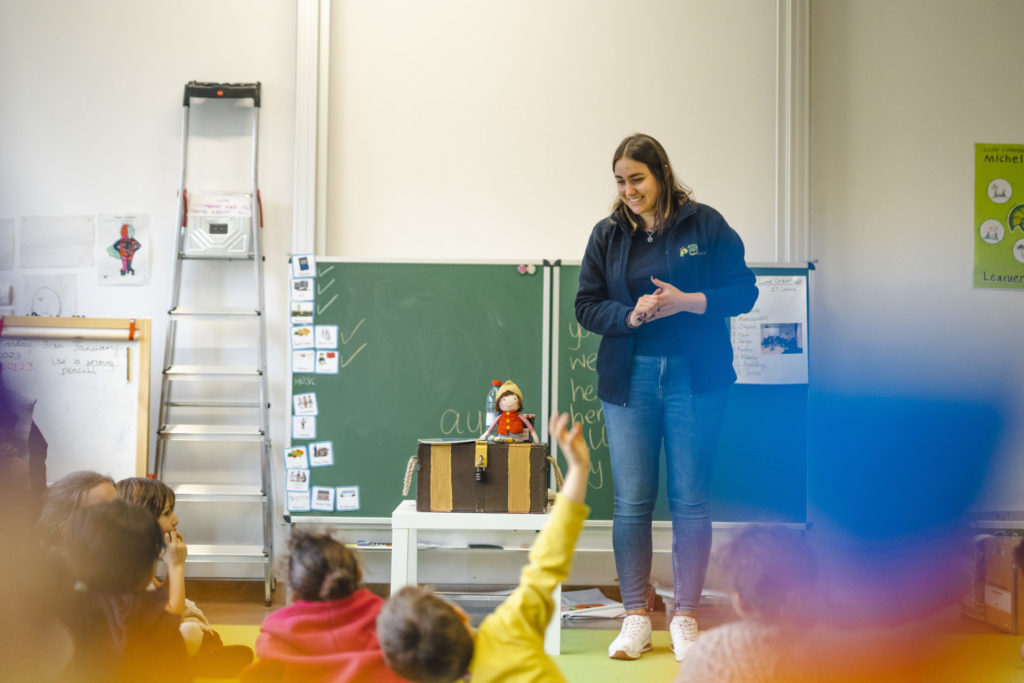
Our highlights :
1. Interactive experiments: practical experiments allow pupils to experience the principles of the circular economy first-hand.
2. Digital voyages of discovery: We use innovative digital tools to explore together how consumption, waste and sustainable resource management are linked.
3. Extensive teaching material: Teachers receive comprehensive educational material in advance to help prepare students for the activities and reinforce what they have learnt.
4. Flexibility: The Circular Lab can come directly to your school on request!
Materials to borrow
Why are there different waste bins and which waste belongs in which bin?
We answer these questions together with the Déierchen of the SuperDrecksKëscht® !
What materials are our everyday objects made of, and can we use waste to create something new?
Pupils discover this together with Billy the Dwarf as they help him open his treasure chest!
How are natural resources transformed into everyday objects? And what happens to the products once they become waste?
The class will get the answers to these questions through this varied activity!
How much waste do we actually produce? Does it make a difference which bin it ends up in?
Find out with this activity!
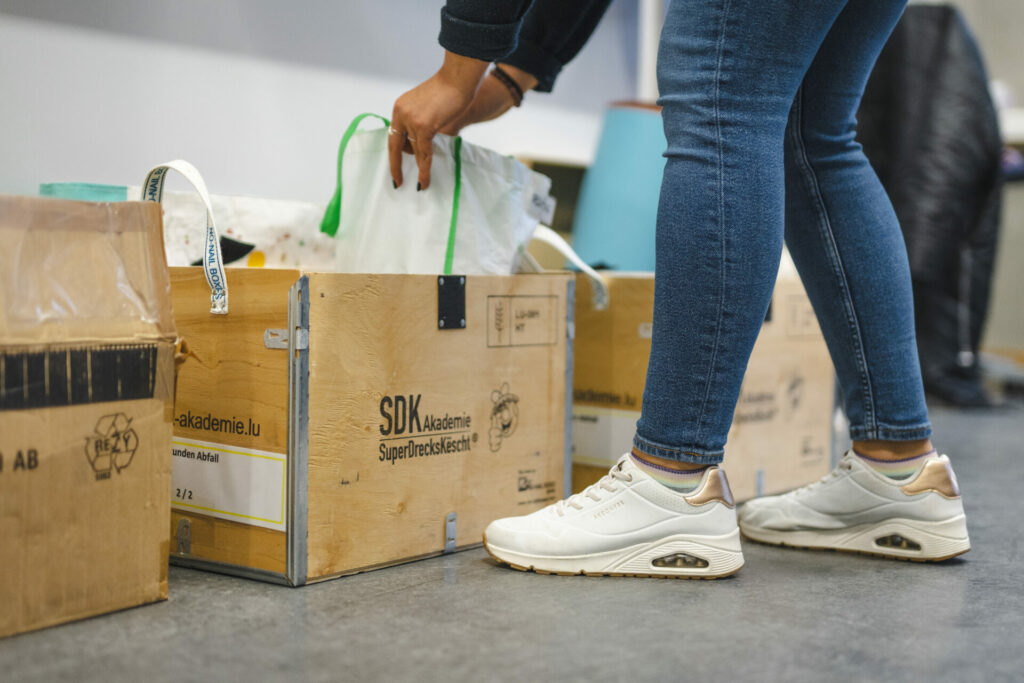
Visits
As a teacher of a cycle 4 class, you would like to clarify the following questions together with your pupils: ‘What does the SuperDrecksKëscht® do? What happens to hazardous waste? Why is waste collected at all?’
These exciting questions will be answered on an adventurous treasure hunt through the SuperDrecksKëscht® logistics centre!
Register by e-mail or telephone and discover with your class what the main tasks of the SDK are and how everyone can make a contribution to the protection of natural resources!
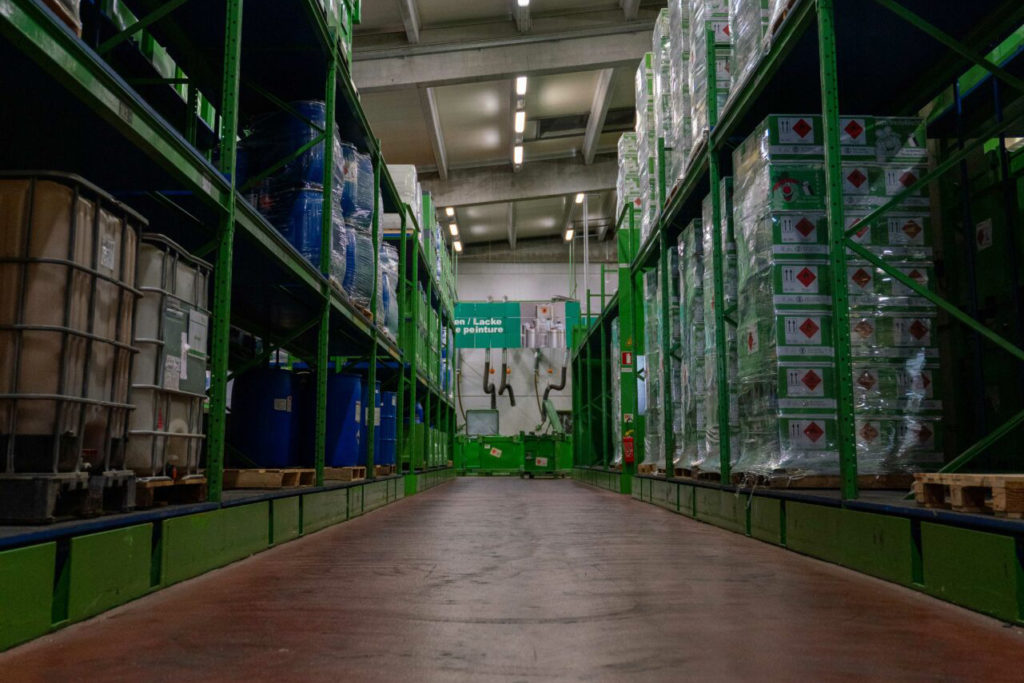
Training and coaching
The course provides a comprehensive introduction to the principles of the circular economy and highlights current projects in Luxembourg. Participants develop creative and practical approaches to waste prevention in everyday school life and develop corresponding projects and ideas together with the children. In addition, strategies for integrating sustainable practices into everyday life and for passing on knowledge to pupils are taught.
